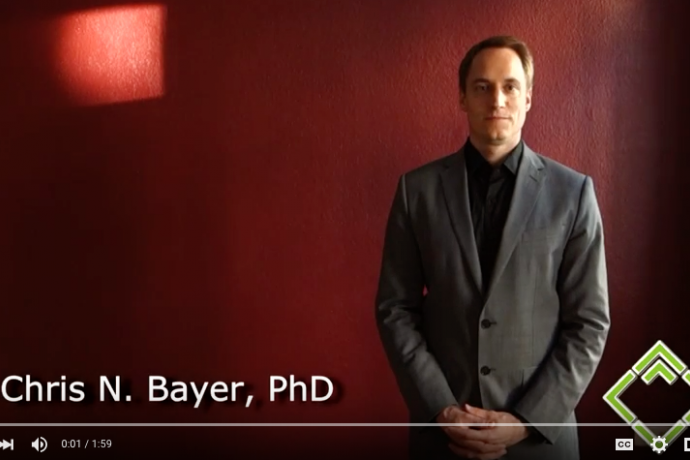Majority of Companies Not Legally Compliant With California Trafficking/Slavery Disclosure Law
Report Assesses the Compliance of 1,504 Companies’ Anti-Human Trafficking and Slavery Disclosures
Published 11-20-15
Submitted by Development International
 Click to view video
Click to view videoThe same group that evaluated SEC filers' corporate disclosures with Dodd-Frank Section 1502 (conflict minerals) now evaluated companies' disclosures required by the California Transparency in Supply Chains Act of 2010 (SB 657).
Development International (DI), a not-for-profit specialized in evaluation, published a report that rates the legal compliance and affirmative conduct of 1,504 companies’ anti-human trafficking and slavery-related disclosure statements.
The California Transparency in Supply Chains Act of 2010 ("CA-TISCA") requires major retailers and manufacturers doing business in California, with global receipts in excess of $100 million, to disclose their “efforts to eradicate slavery and trafficking in their direct supply chains for tangible goods offered for sale” (California Civil Code Section §1714.43). By marrying aspects of Proposition 65 and Title III of the USA Patriot Act, CA-TISCA is indeed unique.
DI’s study is the first to:
Identify the majority of qualifying companies;
Find their disclosure statement on their website;
Score each company’s disclosure compliance with CA-TISCA; and
Score each company's affirmative conduct vis-a-vis CA-TISCA.
With California being the 8th largest economy in the world, it may not come as a surprise that CA-TISCA affects companies with combined revenue of $17 trillion per year, among them many Fortune 1000 companies.
Overall, compliance performance varied greatly. The average disclosure compliance score was 60%. But only 41% of companies were found to have a corporate disclosure score on or above the 70% mark.
“It would behoove any reputable company that qualifies for SB 657 to make sure it is at least legally compliant,” Dr. Chris Bayer, the study’s Principal Investigator, stated. “As at now, many are not.”
In order to ascertain the extent of corporate-driven action relevant to Anti-Human Trafficking and Slavery, DI separately assessed the reported degree of affirmative conduct -- the extent to which a company reported positive action. The average affirmative conduct score of companies with statements was 31%. Fourteen (14%) percent of companies were found to have an affirmative corporate conduct score on or above the 70% mark. Fifteen (15%) percent of companies also noted that they were still working on one or more CA-TISCA-relevant items.
Commenting on the new dynamic ushered in by CA-TISCA, Bayer remarked: “A disclosure law such as CA-TISCA opens companies up to the court of consumer opinion. And the court of consumer opinion in the 21st century, with sheer limitless information at its fingertips, is a force with which must be reckoned.”
Indeed, the Act only requires companies to disclose their activity, not to take any specific action. Companies must disclose what measures they take, if any, to ensure that their products and supply chains do not involve forced labor. Companies must disclose their activity in five required areas: 1) risk verification; 2) supplier audits; 3) supplier certification; 4) internal accountability standards and procedures; and 5) training. An organization may disclose that it takes no action regarding the five required areas, and fully comply with the law, but that disclosure alerts interested consumers that the company may not have the policies and systems in place to mitigate labor abuses in its supply chain.
"Our study shows that many companies are going at this law with an attack-is-the-best defense mentality, and their disclosures clearly demonstrate not only compliance command but also good faith effort. Others, judging from their compliance score, still have some work to do in order to live up to the letter of the law," Bayer concludes.
The specific break-down of both a company's compliance and affirmative conduct score may be obtained as an additional service offered by DI.
DI also maintains an up-to-date table of companies’ disclosure statements and their scores.
About Development International
Development International (DI) is a not-for-profit organization specialized in areas where law, business and development intersect. With a particular focus on evaluation, DI provides empirical and impartial research on controversial subjects where stakeholders – e.g. NGOs vs. the private sector – have historically clashed.
DI's point of departure is to bring independent scientific scrutiny, clarity, and accuracy to bear on issues impacting quality of life, thus constructively moving conversations forward.
DI is based in Germany but active internationally. DI affiliates, national experts in developing countries, help us build north-south bridges of awareness, insight and a common future.

Development International
Development International
Development International (DI) is a not-for-profit organization specialized in areas where law, business and development intersect. DI inter alia specializes in compliance evaluation of individual companies as well as entire industries.
More from Development International

